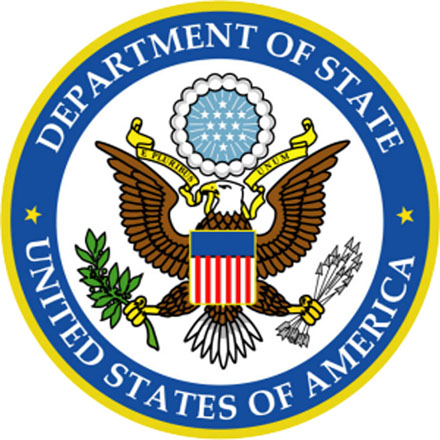Azerbaijan, Baku, March 30 /Trend T.Konyayeva/
The United States had imposed sanctions on Belarusneft, a state-owned Belarussian energy company, for its involvement in the Iranian petroleum sector, the State Department said in its statement.
"In a thorough review, the Department confirmed that Belarusneft entered into a $500 million contract with the NaftIran Intertrade Company in 2007 for the development of the Jofeir oilfield in Iran. The Iran Sanctions Act (ISA) of 1996 requires that sanctions be imposed on companies that make certain investments over $20 million," the statement reads.
The U.S. debar Belarusneft from receiving aid from the U.S. Export-Import Bank, from getting U.S. government export licenses and private U.S. bank loans of more than $10 million in any 12-month period, and from winning U.S. government contracts, the State Department spokesman Mark Toner told reporters at his daily briefing.
According to the statement, in September, 2010, the State Department announced sanctions on the NaftIran Intertrade Company and the Department has applied the "Special Rule" in the Comprehensive Iran Sanctions, Accountability, and Divestment Act (CISADA) of 2010 to persuade five major multinational energy companies to pledge to terminate their investments in Iran and provide assurances not to undertake new energy-related activity in Iran that may be sanctionable. The companies are: Total of France, Statoil of Norway, ENI of Italy, Royal Dutch Shell of the Netherlands, and INPEX of Japan.
In 2010, many foreign companies have abandoned their energy-related projects in Iran or have stopped shipping refined petroleum to Iran.
"This is an appropriate response to Iran's longstanding use of its oil and gas sector to facilitate its proliferation activities and thereby its noncompliance with its nuclear obligations," the statement says.
Iran has repeatedly stated that its nuclear programme is for peaceful purposes of providing energy, but many other countries contend that it is seeking to develop nuclear weapons and last June the Security Council imposed a fourth round of sanctions against it, citing the proliferation risks of its nuclear programme and its continued failure to cooperate with the IAEA.
Resolutions adopted by the UN Security Council, as well as additional unilateral sanctions approved by the U.S. Congress and the foreign ministers of all EU countries, were primarily directed against the banking, financial and energy sectors of Iran.
Restrictions imposed by the EU include the ban on the sale of equipment, technologies and services to Iran's energy sector; the same measure refers to the refining industry. New investments in Iran's energy sector have also been also prohibited as a whole. Because of lack of investments due to the sanctions, the production capacity is decreasing, and therefore, Iran cannot effectively increase production.






